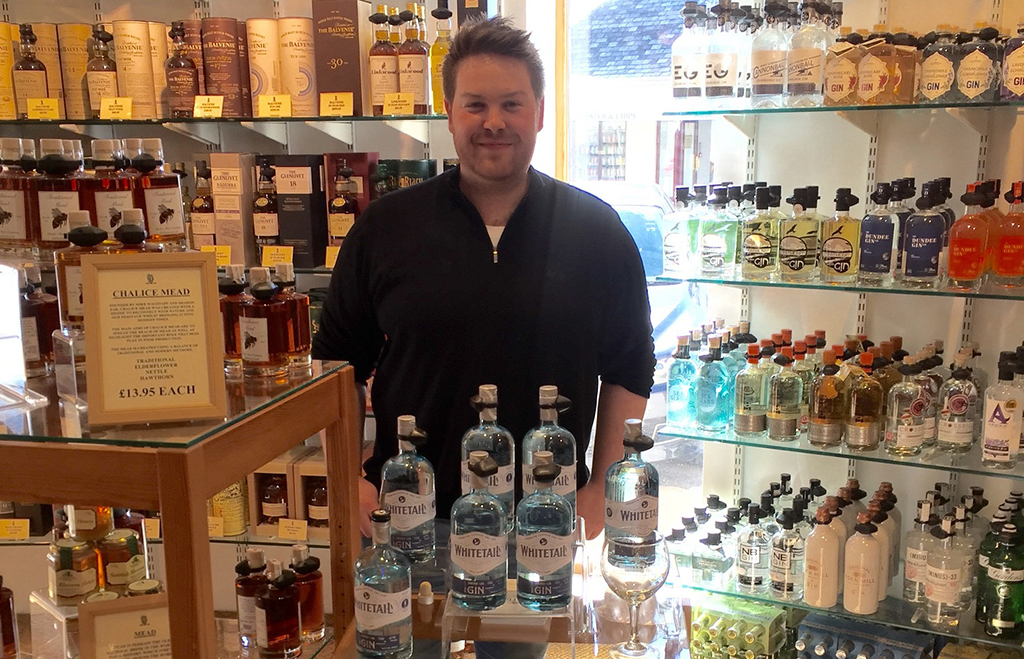A gin deal with a major supermarket is just the tonic for a fledgling Isle of Mull gin business which sold its first bottle less than one year ago.
The contract win with the Co-op is a double celebration for Whitetail Gin – named after the eagle which lives on the Isle – which also secured planning permission for a new micro-distillery at the site of their family-owned Tiroran House Hotel on Mull.
The supply deal comes as the community retailer works to further build and deepen its relationships and support for local, smaller, suppliers – a cornerstone of the community retailer’s food strategy. It will initially supply up to 14 of the Co-op’s stores.
Whitetail Gin, a premium dry gin distilled in London, uses seasonal botanicals found on the Isle including kelp from the sea-loch and pine, to create its distinctive strong and smooth taste – representing the power and grace of the Isle’s eagle name-sake.
Jamie Munro, from Whitetail Gin, said: ‘We are delighted. this is our first listing with a national, community retailer, and we are delighted to work with the Co-op. It is a huge deal for us – and the Co-op’s own ethos, values and approach is a great fit for us.

Whitetail Gin’s Jamie Munro
‘We are still very much in our infancy, yet this has the potential to increase our brand awareness and reach with both residents and visitors to the area alike.’
Charlotte Bleasdale, ranging manager for the Co-op in Scotland, said: ‘The innovation, quality and passion of local, smaller, businesses make them exciting to work with. We are delighted to showcase Whitetail Gin in our stores, and are pleased to play a part in the ongoing success of this Isle of Mull company at a key time in their business development.
‘The Co-op is committed to investing in its local communities – delivering what our members and customers want, when and where they need it, and finding new ways to showcase, celebrate and support great local food and drink producers.’
Jonathan Grey, Co-op spirit buyer, added: ‘Gin is an exciting category, with new flavours and trends emerging, and with something of a “gin-aissance” in the category, we see opportunities for sustainable growth for both established brands and newer entrants, in particular the more diverse, premium and crafted gins with a story behind the brand and ingredients including local, natural botanicals chosen for a unique quality and taste.’
TAGS

